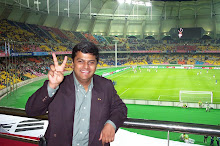In a humorous story, Great Marathi Author P L Deshpande’ s imaginary middle-class protagonist D B Joshi, makes one statement that no one needs to do anything special to keep this world going. He wonders how his employer's company functions without anyone doing any significant work. This statement can be interpreted as totally sarcastic. The sarcasm of PL is inherited from his role model PG Wodehouse who was accused to be totally elitist while instead, he ridiculed the castles and lords of Victorian England. But in reality, as we see, the world survives on the hard work of a few. No one in literature has described it as strongly as Ayn Rand and her objectivism philosophy. Ayn Rand has influenced many generations as they read her early in life and while as people age they realize the realities of life which contradict her binary world of romanticism. You discard many of the processes as immature. But as a verdict after aging, objectivism leaves a good residual impact and helps you ease out a few things in life situations.
As happens with many, Ayn Rand entered my thought process as a teenager. That’s a great influence that has impacted many lives. Life never remains the same again. I have read a few responses from young adults who say that her writing has freed them and they taught them to rely on no one but themselves. Ayn Rand book sales still number in hundreds of thousands annually and incidentally tripled since the 2008 economic meltdown. The core of Rand’s philosophy is that unfettered self-interest is good. This, she believed, is the ultimate expression of human existence, the basic principle by which one ought to live one’s life. She claims that humans start their lives with a zero slate, and pro-social tendencies, particularly altruism, are restrictions imposed on us by society, deceitful lies that cause us to betray biological reality. The protagonist of her most popular novel, “Atlas Shrugged,” symbolizes this: John Galt is a ruthless captain of industry who struggles against stifling government regulations that stand in the way of commerce and profit. In a revolt, he and other captains of the industry each close down the production of their factories, bringing the world economy to its knees. “You need us more than we need you” is their message. In ‘Fountainhead’, the hero is Howard Roark who believes in only his own expression and excellence in architecture versus collective guidelines or customer expectations. All individuals should be motivated by the individual zeal to achieve their own satisfaction and professional excellence and be uncompromisingly adamant to accept anything driven by the interest of the common good.
My own career was shaped based on this. But I realized later in my life that Ayn Rand’s Philosophy had many flaws. Same books sound immature if read at this stage of life. Humans have a tendency to cooperate and to look out for each other, as noted by many anthropologists who study hunter-gatherers. Those who believed totally in Objectivism never grew out of the usual "the world is persecuting me and doesn't see my true genius" phase as a teenager. As a paradox, some people claim to adore the free-market glorification of Ayn Rand," pretentiously imagine themselves as individualists like Howard Roark and John Galt, tell themselves that their greed is beneficial, and thus demonize government and taxation. They are more than happy to (among other things) drive on taxpayer-funded roads; to have their assets defended by government-funded police and firefighters; to have their property rights protected by a law enforcement collective known as the judiciary. These collective realities things are inevitable and unbridled individualism out of social context is nothing. It takes years of life experience to get you away from Rand’s romanticism. There are few real-world flaws of Objectivism which you realize as you grow. Laissez-Faire capitalism is a utopian fantasy. And like all utopias, it cannot actually exist. Reason has real-world limitations. Facts do not trump feelings, wishes, hopes, and fears. Every man does NOT exist for his own sake or own self-interest.
My own Objectivism started diluting as I aged. I was driven by slightly unfashionable motivation and was slightly intangible in form of the nature of work that I liked in those years. And I had to pay price for that un-conventionalism sometimes. But ultimately objectivism is what mattered and triumphed in the end as per my own standards and not to be judged by anyone. That is the biggest learning I have got from books of objectivism. And it acts like strength during moments of doubt.
Thus I firmly believe, contrary to the imaginary D B Joshi, that it takes a few good hardworking men to keep the system running. Imagine honest IAS/IPS officers taking on the system. Imagine well-meaning employees in corrupt governance systems. Imagine a few key Project Managers and techies managing the whole project amidst loads of good for nothing and pampered project teams. Every organization has those. These people are driven by a sense of ownership, excellence, and achievement and not by external drivers. Search around you in your workplace, you will find them whichever might be your domain. But then do all get recognition, some do. Most of these ‘first handers’ as defined by Ayn Rand go unsung. We have many examples of that. If anyone has seen movies like ‘The pirates of silicon valley’ or ‘social network’, or Infosys saga fact still gets underlined. Not that all these great people were not ‘first-handers’, but life lessons teach you that apart from professional excellence or objectivism, you need some special skill sets to get recognized and make it big as beautifully explained by Malcolm Gladwell in Outliers. And mostly world has a tendency to worship false heroes. But those driven by real-world objectivism don’t care and they march on.
Sci-fis and thrillers are rendered irrelevant with time. Some books like Atlas Shrugged or Fountainhead render different experiences in different stages of life, unlike timeless classics.



No comments:
Post a Comment